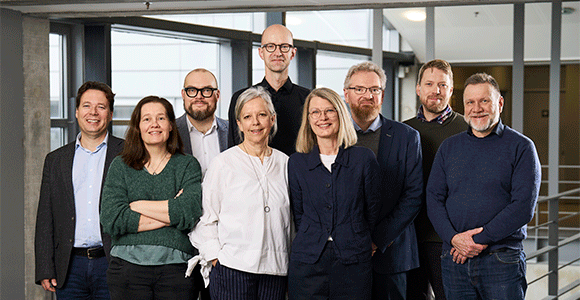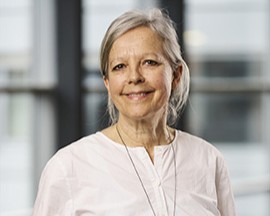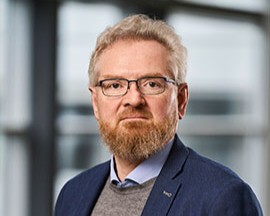The war in Ukraine has created a new geopolitical reality that affects all of Europe, including the Nordic countries. This conflict has led to dramatic consequences, including hybrid warfare, refugee flows, closed borders, threats of nuclear weapons and increased armament. In this context, it is crucial to understand how the Nordic societies can adapt to and manage these challenges, which is the focus of this research project.
Nordic exceptionalism
The consequences of the war in Ukraine and the crisis that it has unleashed may be felt particularly strongly in the Nordic Region because of so-called Nordic exceptionalism: the belief in the Nordic Region as a model of peace and democracy. The idea originated in the 18th century and was developed in the 19th century at a time when the role of small states became a virtue. The 20th century saw the triumph of democracy and the consolidation of the Nordic model. This created an idealism that made the Nordic Region a fertile breeding ground for the thesis of ‘the End of History’ after the Cold War. In other words, this is a fundamental perception of the Nordic Region, and it has been severely challenged in recent years.
Finland and Sweden’s entry into NATO
Today, it is no longer possible to live on the peace dividend, which has changed both political rhetoric and security policy in the Nordic Region. Neutrality became a common Nordic policy after the Second Schleswig War of 1864, but after the Second World War, the Western Nordic countries chose to join NATO, while the Eastern Nordic countries maintained neutrality. The entry of Finland and Sweden into NATO represents a break that creates the conditions for a common Nordic security policy. A Nordic defence strategy under the auspices of NATO is already being developed.
Research aims
The research project has two main objectives: to analyse what the war in Ukraine means for the Nordic societies and to use insights from the humanities, the arts and culture to address the new challenges in the confrontation with Russia. We do this not only by examining the immediate consequences of the war for the Nordic Region, but also by looking for historical parallels that can help us understand the current trends. We explore analogies in the history of the 19th and 20th centuries and use the ‘applied history’ approach, in which historical knowledge, thinking and parallels are used to analyse contemporary challenges.
The project examines the impact of war in the Nordic Region from two angles:
-
Geopolitics and security policy: The Nordic Region has often been defined by the great powers and the international system. The cluster will explore past upheavals and strategies, including the Napoleonic Wars, the World Wars and the Cold War. Greenland’s geopolitical role and security of supply will be analysed. The cluster will be led by Professor Rasmus Glenthøj (SDU), Associate Professor Niels Bjerre-Poulsen (SDU) and Postdoc Jon Reinhardt Larsen (SDU).
-
Culture war, activism and confrontation in the Nordic Region: The project will explore how conflict affects protest culture, political activism and cultural life in the Nordic Region. It will also highlight the role of civil society in the new geopolitical situation in which Denmark has expressed its political and military support for Ukraine. The art and cultural life emanating from the Nordic Region has often been seen as peripheral compared to the contributions of centres such as Paris and New York. This overlooks dynamics and regional exchanges arising from the Nordic Region’s unique geographical position. The cluster is led by Professor Rasmus Mariager (UCPH), Malene Breunig (SDU), Mette Sandbye (UCPH), Kristian Handberg (UCPH), and Associate Professor Tea Sindbæk Andersen (UCPH).
Effects can be mitigated
Although the effects of the war in Ukraine have been overwhelming, as mentioned, historical experience suggests that we have only seen the tip of the iceberg. Geopolitical conflicts involving high-intensity warfare have not only changed the security policies of the countries involved but have permeated societal development and everyday life.
Although the developments seem inevitable, the effects can be mitigated; and it is crucial that we adapt to the new reality on an informed basis, using our knowledge of the present and the lessons we can learn from the past.








